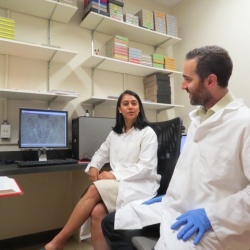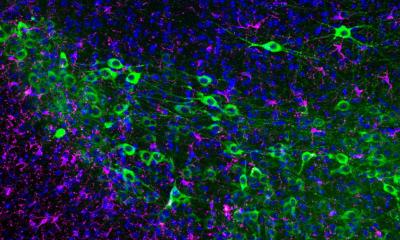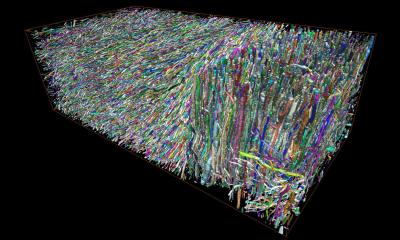Waiting for Pleasure
Brain structures involved in delayed gratification identified
Researchers at McGill University have clearly identified, for the first time, the specific parts of the brain involved in decisions that call for delayed gratification. In a paper published in the European Journal of Neuroscience, they demonstrated that the hippocampus (associated with memory) and the nucleus accumbens (associated with pleasure) work together in making critical decisions of this type, where time plays a role.

The researchers showed that when these two structures were effectively ‘disconnected’ in the brain, there is a disruption of decisions related to delayed gratification. It is a discovery which has implications not only for a range of neuropsychiatric disorders such as ADHD, eating disorders and anxiety disorders, but also for more common problems involving maladaptive daily decisions about drug or alcohol use, gambling or credit card binges.
How the work was done
The researchers discovered the importance of this connection by working with rats trained to make choices between stimuli that would result in their receiving different amounts of rewards, after varying periods of time. The rats were asked to choose between two identical visual shapes by pressing their nose against one of them on a touchscreen (similar to an iPad), in exchange for rewards in the form of sugar pellets. Like most humans, rats have a sweet tooth.
With time, rats learned to negotiate a trade-off between a small reward (1 sugar pellet) delivered immediately and a large reward (4 sugar pellets) delivered after a delay. The researchers discovered that the average rat, like the average human, is willing to wait a bit for a larger reward, but only for a certain period of time, and only if the reward is large enough.
However, following disruption of the circuit connecting the hippocampus and nucleus accumbens, the rats became impatient and unwilling to wait, even for a few seconds. They always selected the immediate reward despite its smaller size. Importantly, lesions to other parts of the brain, including the prefrontal cortex, known to be involved in certain aspects of decision-making, did not cause this behavioural change.
Implications and next steps
“This is a type of decision-making that many of us grapple with in daily life, particularly the very young, the very old, and those with brain disease,” said Prof. Yogita Chudasama, of McGill’s Psychology Department and the lead researcher on the paper. “In some ways this relationship makes sense; the hippocampus is thought to have a role in future planning, and the nucleus accumbens is a "reward" center and a major recipient of dopamine, a chemical responsible for transmitting signals related to pleasure and reward, but we couldn’t have imagined that the results would be so clear. In addition to providing a deeper understanding of decision-making, our results highlight the potential of this circuit, involving the hippocampus and nucleus accumbens, to be a therapeutic target in human patient groups.”
Source: McGill University
25.08.2015





